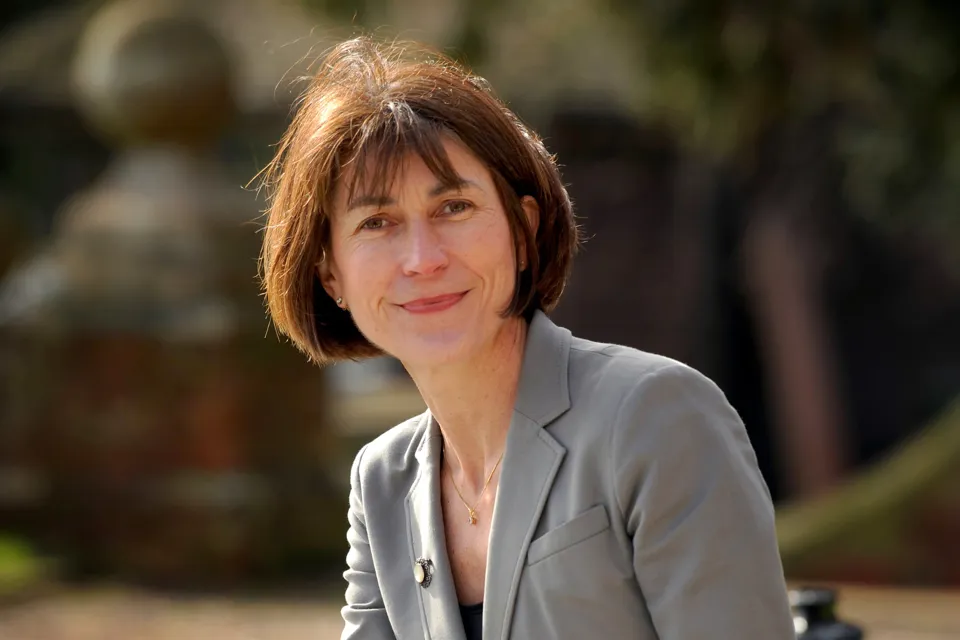"Be clear about what we are and be proud of that, without trying to become what everyone else wants us to be.” That was the clear message from Marks and Spencers’ head of customer service Jo Moran at AM’s first executive breakfast of 2015.
“It’s really important to be clear about what you are and what you aren’t – we wouldn’t chase the Topshop customer, for example. Celebrate what you’re good at.”
Moran said: “When I talk about customer service, there are three key areas; product, environment and service. If you think of each area as a circle in a Venn diagram, the section in the middle is a percentage mix of each element. You have to plan what you want your business to represent and at what balance you want your three circles to be at.
“Customers want different things out of those three circles on any one particular day. If you go to M&S to get a sandwich you aren’t hugely bothered about the environment, as long as it’s clean and tidy. All you really require is ‘that’ll be £5 please’ and you’re on your way.
“But, you might come in later on to buy a suit, which means those circles then change. Any organisation offering customer service must be clear on how they equip employees with the ability to recognise what the most important circle for a particular customer at a particular time is,” said Moran.
The growing importance of the service ‘circle’
Moran used Ryanair as an example: “They knew what they wanted to be. They never talked about service or quality, they just delivered on providing a cheap service.”
However, the circle of service is becoming more important to customers, which has changed the way Ryanair’s chief executive Michael O’Leary thinks and the brand is slowly implementing a better service.
“There is a real fine balance when investing in your environment – you don’t get brownie points for having a good environment or over-investing, but you do lose points on a bad environment. Fixtures and fittings are incredibly expensive and to be honest I don’t think the customer even notices what colour the floor is.”
In the past, Moran said, M&S invested a lot in infrastructure and not enough in people on the ground. This gives customers a nice environment, but when they can’t get served, or receive bad service, that is what they remember.
“We have spent £1.5 billion over the last three years on store renovation, which meant reducing the store staffing budget by 25%,” said Moran.
She said she couldn’t emphasise enough the importance of getting the right people. As franchisees, car dealers often don’t have full control of the environment and aesthetics of the showroom, but “people remember people and this is the bit you’re in full control of and what drives consumer loyalty. However, it’s also the difficult bit because people sometimes bring their baggage to work.”
Moran explained that M&S once recruited based on skills or particular competencies, but now it looks for evidence of a good customer service attitude.
“Staff don’t need to know everything; it’s their attitude that’s important, so rather than saying ‘I don’t know’ to a question they say: ‘why don’t we check that together’.”
To get these great people, she said benefit packages must be relevant to them.
“We thank our staff often, with little postcards and instant rewards (not M&S products) if they’ve shown great customer service – recognition is really important.
“Some of the best ideas will come from the guys on your shop floor and getting those ideas through to you can be tough. We use a social media platform called Yammer. People can send messages or feedback to each other and I will get that instantly, without a lengthy chain of command.
“We have invested in our front-line managers in recent years and the results have been phenomenal,” said Moran. These line managers are hugely influential to retail staff, so training was implemented which would then be fed down the chain.
Aligning online, offline and mobile retail experiences
Brand integrity is important, said Moran, so prices that are on your website should match those on your forecourts.
“We are currently trying to integrate our channels – store, web, mobile – so people that buy online buy in store and vice versa. If a customer shops in one channel we gain revenue, if we can get them to shop in an additional channel that revenue is multiplied.”
The AM Executive Breakfast Club
 The AM Executive Breakfast Club meetings are an exclusive opportunity for senior franchised dealer executives to meet and discuss the issues of the day.
The AM Executive Breakfast Club meetings are an exclusive opportunity for senior franchised dealer executives to meet and discuss the issues of the day.
A guest speaker will open the proceedings, which will inspire, inform and are certain to stimulate invigorating debate among the attendees.
Previous speakers include Gerald Ratner, James Timpson, BJ Cunningham, Mark Palmer, David Smith, Andrew McMillan, Anthony Hilton, Wilfred Emmanuel-Jones, Aleks Krotoski, Jeff Grout, James Kydd, Tom Cannon & John Peters.
Attendance is exclusive to senior dealer group executives, which have previously included representatives of Alan Day; Arnold Clark; Benfield Motor Group; Bentleys Motor Group; Birchwood Group and WSM; Brayley Honda; Cambria Automobiles; Charters Group; Endeavour Automotive; Essex Auto Group; TrustFord; Harwoods Group; Hendy; Hepworth Honda; HR Owen; Inchcape UK; Jardine Motors; John Clark; John Grose Group; Knights North Staffordshire; Lifestyle Europe; Lookers; Luscombe Suzuki Leeds; Marriott Motor Group; Marshall of Cambridge; Meridian Motor Group; Mitchell Group; Parkway Derby; Pendragon; Peoples; Perrys Motor Sales; Peter Cooper Volkswagen; Peter Vardy; Phoenix Car Company; Richard Hardie; Ridgeway Group; RRG Group; Slough Motor Company; Spire Automotive; Sportif Group; Sturgess Motor Group; Swansway Group; Sytner Group; T C Harrison Group; Thurlow Nunn; Unity Automotive; and Harratts.















Login to comment
Comments
No comments have been made yet.